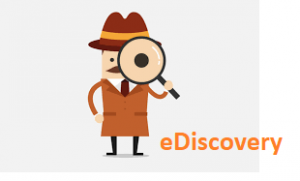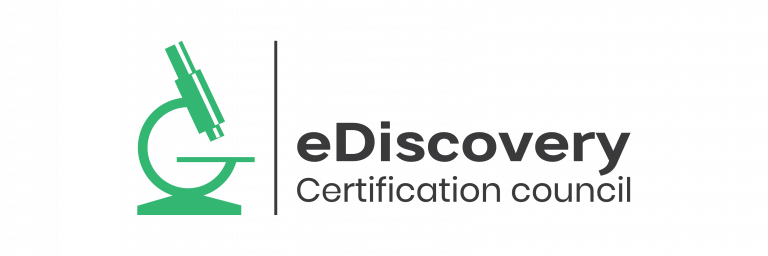Exam Details
| Certification Badge: |  |
| Number of Questions: | 50 |
| Pass Score: | 70% |
| Time Allotted: | 90 minutes |
| Exam Language: | English |
| Exam Format: | Online |
| Exam Expiration: | 1 Year from Purchase |
| Study Guide: | PDF sold separately |
Certified eDiscovery Analyst, CeDA
Become a CeDA – Certified eDiscovery Analyst. The Certified
eDiscovery Analyst course is ideal for individuals, eDiscovery practitioners,
managers and executives, interested in acquiring knowledge across a wide
array of eDiscovery practices and principles.
This certification testifies to your understanding and expertise in eDiscovery,
as an analyst.
Course Outline
What is eDiscovery and electronic store information (ESI)
ESI such as: Emails, Text and SMS messages, Social media communications, Digital photos and videos, Instant messages, Global positioning data, IoT devices, and more
Electronic Discovery Reference Model (EDRM)
Electronic Discovery Reference Model – Stages and Stages Standards
Electronic Discovery Reference Model (EDRM) – Limitations
E-Discovery Process Influencers: Size and Nature of the Company, Industry, Data Infrastructure, Location/Jurisdiction
The Hardware and Software Essentials
Concordance Basic Functions – Database Use in eDiscovery and the Law
Audio, Audacity – Enhancing Audio and Detecting Alterations in Audio Files, Placing labels inside an audio file, Using Onenote to index an audio file
Searching the Web for eDiscovery Information
Examining Metadata in eDiscovery to Uncover Hidden Information Using Metadata Viewer and Other tools
Inventorying Data on Hard drives, Disks and Sticks – Software for eDiscovery Archiving and Examination – Including DOS commands and DirectoryLister
Relativity as an E discovery Tool – the Basics
Nuix Software and Its Use in eDiscovery
Recovering Deleted Files Using Prodiscovery and other tools
Making Forensic Copies of Hard Drives and Backing Up E discovery data
Creating eDiscovery Databases Using MS Access
The Sedona Principles and Critical Software and Hardware Related to these Principles
The computer software utilized in “eDiscovery” to assure both conformity to these principles and to uncover “edetails” relevant to the litigation are the focus of this webinar series.
The essential tools for uncovering, preserving, analyzing and documenting electronic (computerized/digital) data will be presented. Demonstration of how to detect altered electronic data
ISO/IEC 27050
Evaluating eDiscovery Software Providers
Evaluating eDiscovery Offerings: Cost, Features, Security, Deployment Options, Reviews
Team Organisation and Operational Issues
Spoliation and Sanctions
eDiscovery and the Right to Delete
Location of discovered data – As an issue
Lawyers – The Good, Bad and the Ugly
Discovery requirements and common mistakes
Establish key best practices
- Focus on employee involvement
- Ensure that IT and legal understand each
- Develop good eDiscovery policies.
- Implementing deletion policies
- The importance of litigation holds.
- Implement the right technologies
Case Assessment / Quiz / Practical and Demos
Best practice recommendation

